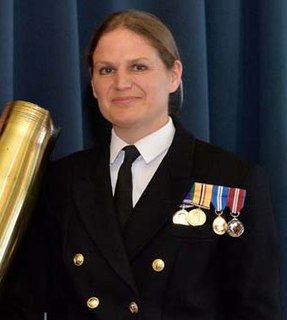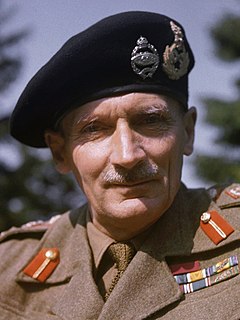A Quote by Sarah West
Anti-submarine warfare is the military version of chess. You must work out what the enemy is going to do before they even think of it.
Related Quotes
I was fascinated by making a submarine movie, inspired by the Kursk disaster. This idea of being trapped down at the bottom of the sea seemed so terrifying. I was very interested in making a sub film which wasn't a military film. You think, Well, why are they there, then, if they're not in the military? Oh, well, they must be looking for treasure.
A good story isn't the one that shuts everyone down and sort of leaves them in silent awe. A good story is one that, even before you finish the anecdote, you can see their eyes shining because it has so resonated with something from their own lives that everyone in the group has a version of the same story and they cannot wait to tell it, and that they're going to compete to make their version even more extreme than your version. So your version is just a seed.
When you edit, you imagine your enemy is seated on the other side of the table. Your enemy! And your enemy is going to read that with a viciousness, because he knows where you didn't work on it. He's going to shake it and really aim for that jugular. So you are going to polish, and revise, and rewrite, and cut out, and shape it, so that your enemy has no place to grip it. That's how you revise.
Before I became President, in the aftermath of the Vietnam War, there had been fairly dramatic, and I think excessive, reductions in the capability of our military forces, and as a former military man myself - I was a professional naval officer, a submarine officer - I thought it was better, on a step-by-step, very carefully planned way, to increase the technical, or technological, capability of our weapons systems.
Sometimes I go to a test screening and look at the audience in line, and I start to go, "Okay, I bet this is going to work, and this isn't going to work." It's weird, but just going and facing the music and putting it out before a crowd, even before it starts playing, that exercise of putting it up on a screen for people makes you realize things even before it starts rolling. It's really weird. I've heard other people say that, too.
When he emerged Lou Dobbs the populist, he was so hard to peg. A mishmash of contradictions: anti-outsourcing, anti-globalization, pro-international-trade, pro-free-enterprise, anti-corporatism, pro-choice, pro-Second Amendment, pro-gay-marriage, pro-gays-serving-openly-in-the-military, pro-military, anti-war-in-Iraq-and-Afghanistan.
Like Dvoretsky, I think that (all other things being equal), the analytical method of studying chess must give you a colossal advantage over the chess pragmatist, and that there can be no certainty in chess without analysis. I personally acquired these views from my sessions with Mikhail Botvinnik, and they laid the foundations of my chess-playing life.
Inside the White House there were always extreme amounts of doubt about whether they should be escalating in Afghanistan. In fact, most of the president's advisers said, "This is probably not going to work." A lot of people in the military said, "This is probably not going to work." If the thumbnail version of the Iraq war was that George W.Bush lied about mass destruction weapons, the thumbnail version of Barack Obama's war in Afghanistan is that the generals pushed him into a war he didn't want to fight.
One cannot make command decisions simply by assessing the tactical situation and going ahead with whatever course of action will do the most harm to the enemy with a minimum of death and damage to your own men and materiel. Modern warfare has become very complex, especially during the last century. Wars are won not by a simple series of battles won, but by a complex interrelationship among military victory, economic pressures, logistic maneuvering, access to the enemy’s information, political postures—dozens, literally dozens of factors.





































